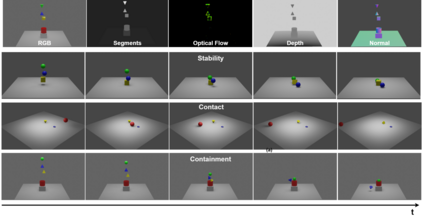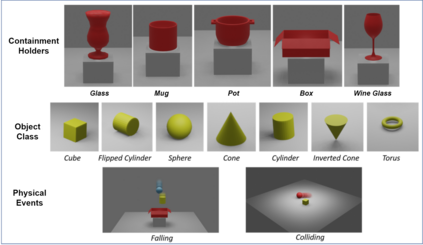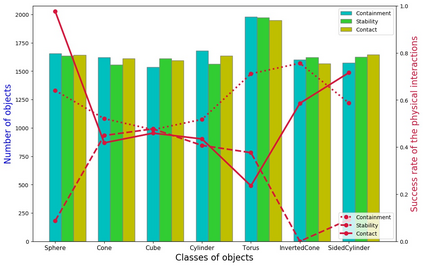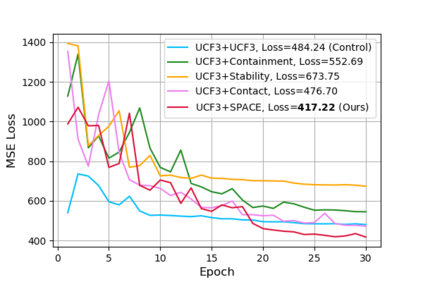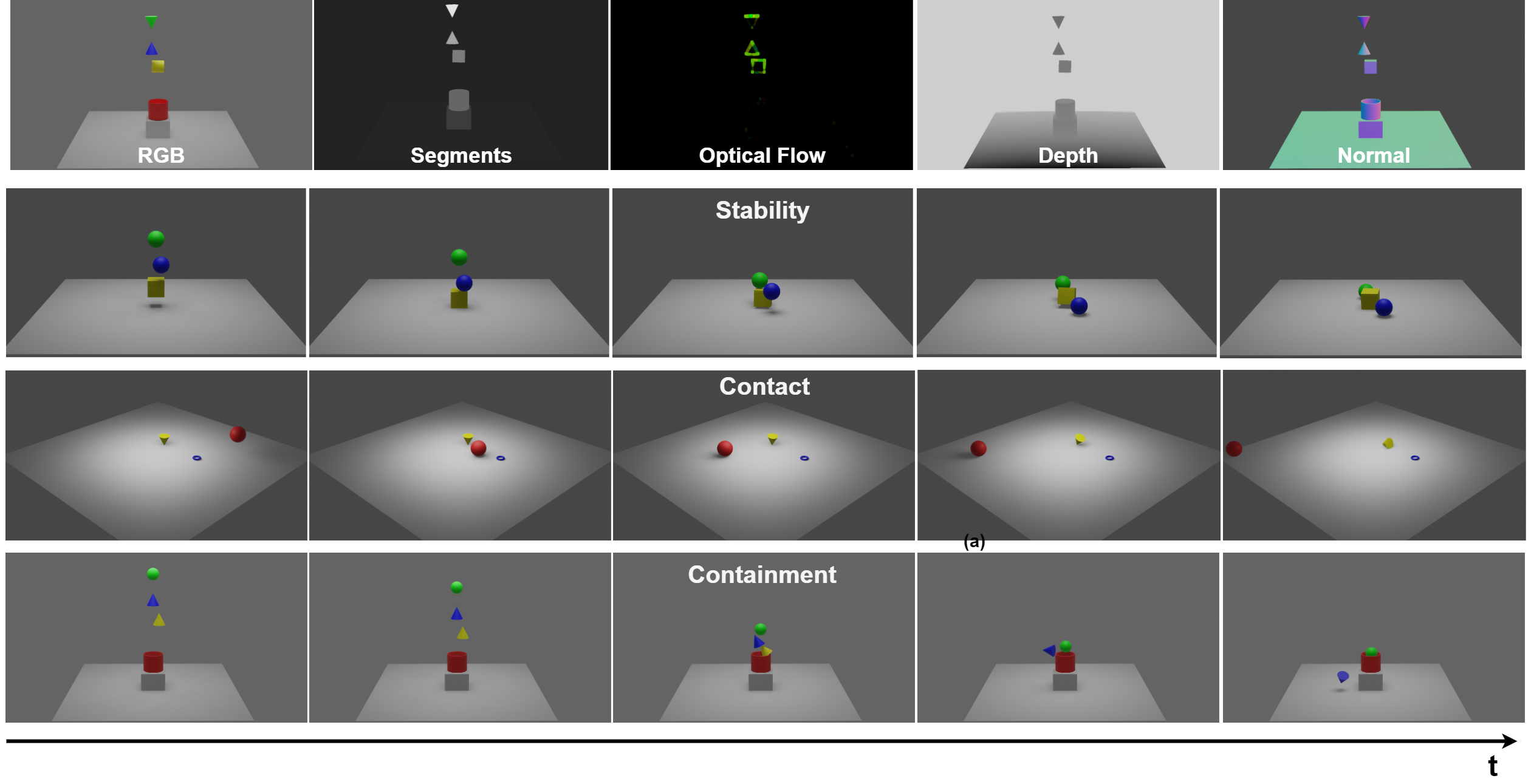Recent advancements in deep learning, computer vision, and embodied AI have given rise to synthetic causal reasoning video datasets. These datasets facilitate the development of AI algorithms that can reason about physical interactions between objects. However, datasets thus far have primarily focused on elementary physical events such as rolling or falling. There is currently a scarcity of datasets that focus on the physical interactions that humans perform daily with objects in the real world. To address this scarcity, we introduce SPACE: A Simulator for Physical Interactions and Causal Learning in 3D Environments. The SPACE simulator allows us to generate the SPACE dataset, a synthetic video dataset in a 3D environment, to systematically evaluate physics-based models on a range of physical causal reasoning tasks. Inspired by daily object interactions, the SPACE dataset comprises videos depicting three types of physical events: containment, stability and contact. These events make up the vast majority of the basic physical interactions between objects. We then further evaluate it with a state-of-the-art physics-based deep model and show that the SPACE dataset improves the learning of intuitive physics with an approach inspired by curriculum learning. Repository: https://github.com/jiafei1224/SPACE
翻译:最近深层学习、计算机视觉和体现的AI方面的进步导致合成的因果推理视频数据集。这些数据集有助于开发能够解释天体之间物理互动的AI算法。然而,迄今为止,数据集主要侧重于诸如滚动或坠落等基本物理事件。目前,侧重于人类与现实世界中天天天与天体相互作用的数据集稀缺。为解决这一稀缺问题,我们引入了空间:3D环境中物理互动和因果关系学习模拟器。空间模拟器允许我们生成空间数据集,即3D环境中的合成视频数据集,以系统评估一系列物理因果推理任务的物理模型。受日常物体相互作用的启发,空间数据集包含描述三种物理事件的视频:封闭、稳定性和接触。这些事件构成了天体之间基本物理互动的绝大多数。然后我们用一个基于状态的物理基础深度模型进一步评估它,并显示空间数据集改进了对直觉物理物理学的学习:受课程启发的 AMGI/Recompos。

